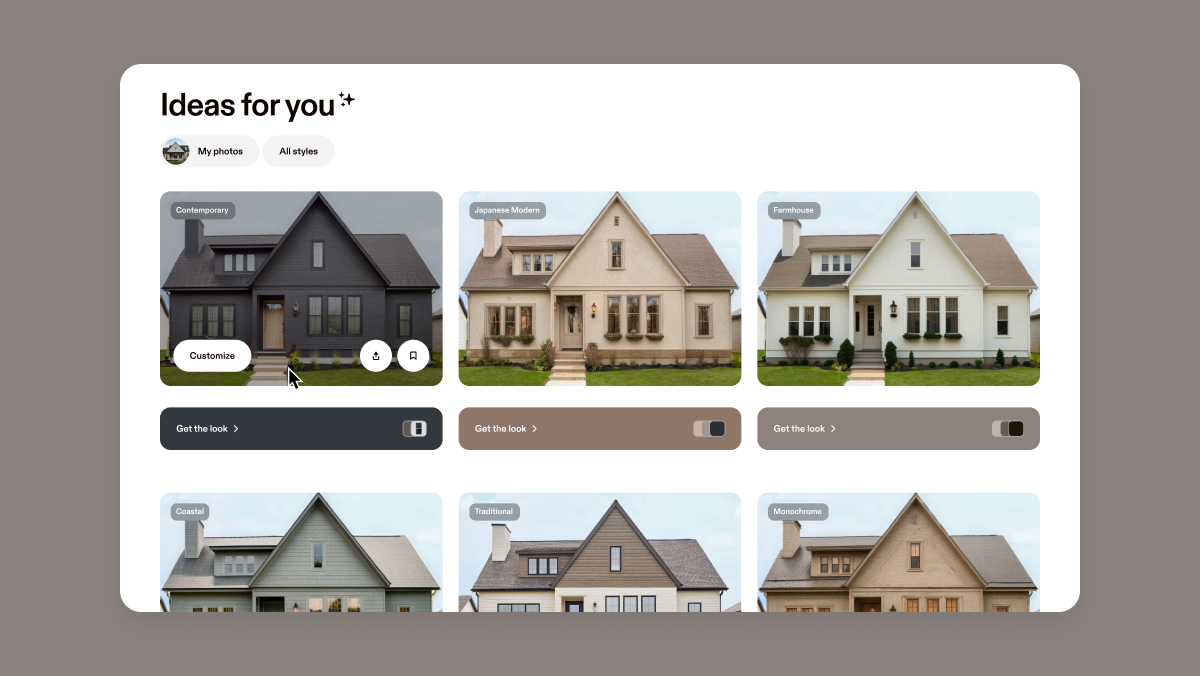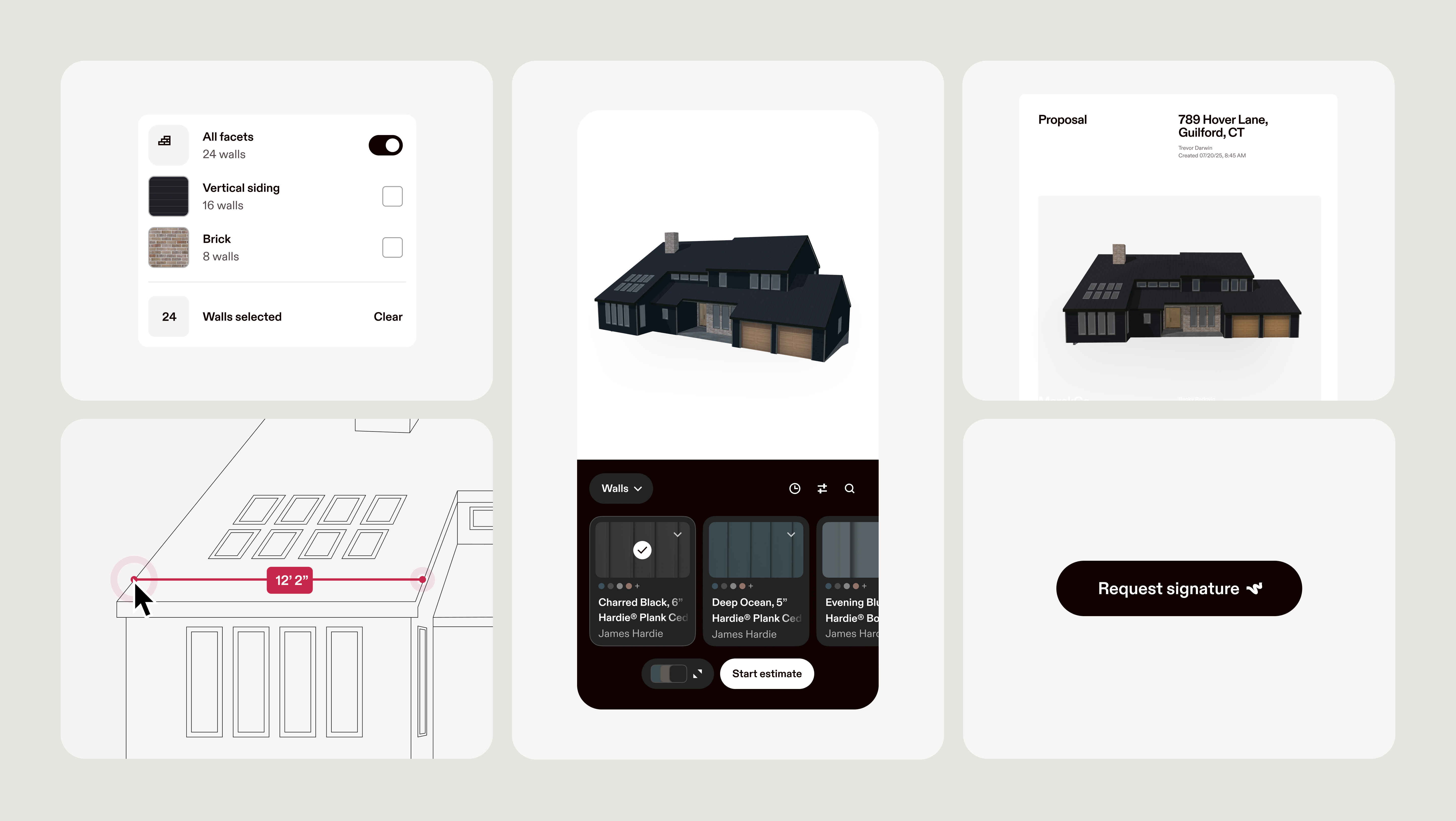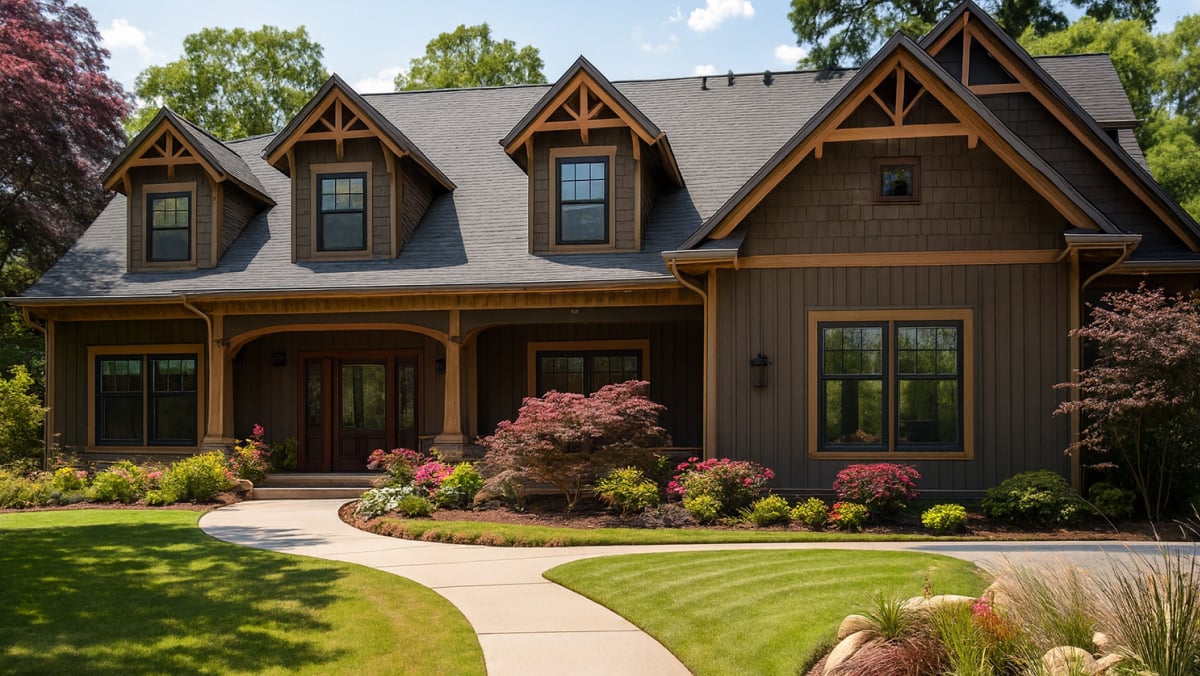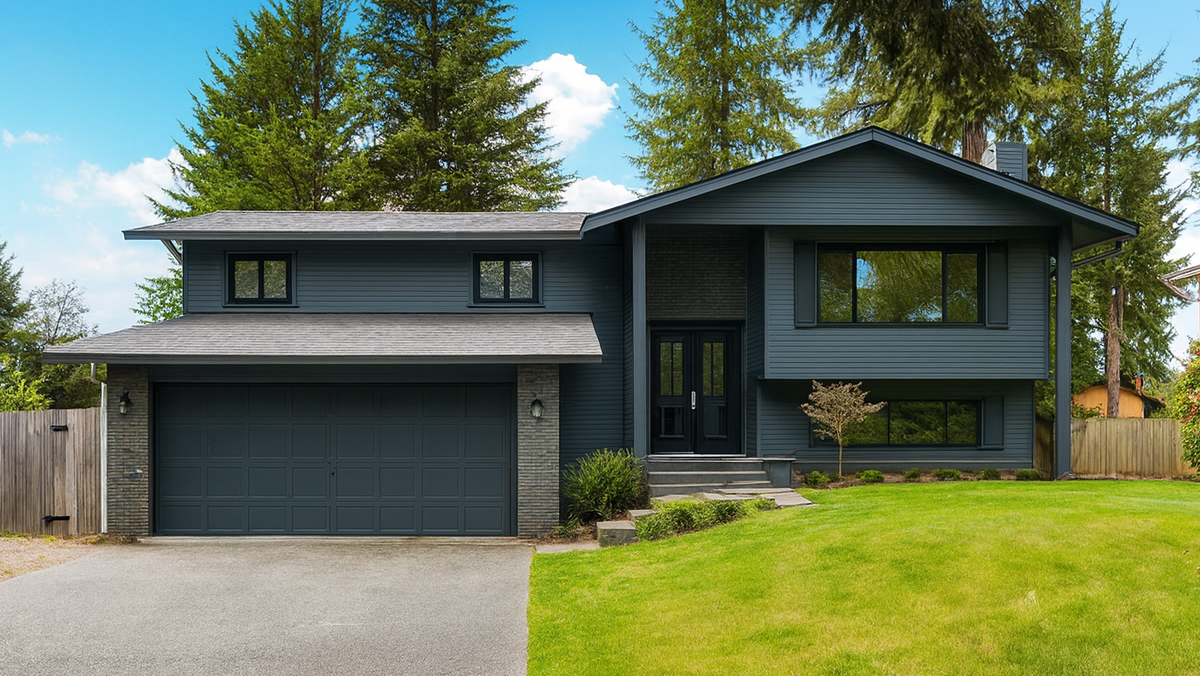Your home exterior is the first thing people see — and the first thing that shows age. Perhaps the paint looks tired, the siding doesn’t match the roof, or you've added a new garage and things never quite lined up. A house exterior renovation is how you pull it all together, and Hover provides you with the tools you need for inspiration, visualization, and practicality.
This guide walks through what to update, how to plan it, and how to see the design before you commit. Want to skip straight to design? Check out our free design experience here.
What is a house exterior renovation?
A house exterior renovation is any project (or set of projects) that updates the outside of your home to improve curb appeal, protect the structure, and modernize the look. It can be as small as new paint and lighting or as big as new siding, roofing, and windows.
Most homeowners do it for three reasons:
-
Curb appeal — the home looks fresher and more modern.
-
Protection — worn siding or roofing can let water in and cause serious damage.
-
Resale value — exterior upgrades are some of the highest-ROI projects.
According to the JLC annual Cost vs. Value Report, exterior projects such as garage doors, entry doors, siding, and stone veneer consistently rank among the highest-ROI home improvements.
Signs your home exterior is due for renovation
Sometimes it’s not one big, obvious problem — it’s a handful of little signals that your exterior’s getting tired. Before you embark on a full renovation, scan for the most common signs that homeowners and contractors look for. If you’re seeing two or three of these at the same time, it’s a good indication your home would benefit from a coordinated exterior refresh instead of piecemeal fixes.
-
Fading or peeling paint
-
Cracked, warped, or mismatched siding
-
Roof looks patchy or is older than 15–20 years
-
Trim and fascia look dated compared to the rest of the house
-
You added an addition, and the materials don’t match
-
You’re getting bids, and everything costs enough that you want to see it first
If a few of those hit, a planned renovation (not a bunch of one-off fixes) will give you a better end result and will likely be more cost-efficient.
The 7 biggest exterior upgrades to consider
You don’t need every upgrade on this list — but these are the ones that actually move the needle and can significantly improve the value of your home.
1. Siding replacement or refresh
Siding is the largest visual surface on the home, so changing the material, color, or pattern has the greatest impact. Fiber cement, vinyl, engineered wood, and board-and-batten styles are popular because they offer a modern look and require lower maintenance.
Pro tip: test color + trim combos on a model of your home before you decide on materials
2. Roofing
If the roof is nearing the end of its life or mismatched with the new siding color, it’s worth doing at the same time. Coordinating the roof and siding is one of the fastest ways to make an older home look like a “new build.”
3. Windows and doors
New front door, new garage door, and black/bronze window trim are small changes that make a 1990s house look 2025. You can visualize options for all three in Hover.
4. Paint and trim
Sometimes you don’t need all-new siding — you just need a new palette. Classic exterior combos right now:
-
Warm white siding + wood tone door + black accents
-
Greige siding + white trim + dark roof
-
Two-tone (lap siding + board-and-batten on gables)
This is exactly where a visualizer helps — it’s hard to pick colors from a tiny swatch.
5. Porch, entry, and railings
People underestimate this. Cleaning up the front approach — new railings, wrapped columns, better lighting — makes everything else look intentional.
6. Stone or accent materials
Add stone veneer or an accent material on the lower third, chimney, or entry to break up a tall façade.
7. Lighting and hardware
Once the major tasks are complete, replace the fixtures, house numbers, mailbox, and door hardware to match the new style.

How to plan your exterior renovation
1. Start with the look
Don’t start with the contractor… start with the vision.
-
Style: modern farmhouse, transitional, craftsman refresh, coastal
-
Color direction: light + contrast trim, or darker, moodier body color
-
What must stay (roof, brick) vs. what can change
This is where Hover comes in. Bring your vision to life here.
2. Set a budget range
Exterior projects can vary significantly based on the size of the home, the materials used, and labor costs in your area. A quick way to think about it:
-
Paint-only refresh: lower cost
-
Siding + paint + trim: mid-to-high
-
Full siding replacement + roof + windows: premium
3. Sequence the work
Exterior work should follow the “outside-in, top-down” rule:
-
Roof and structural issues
-
Siding and windows
-
Paint and trim
-
Entry/porch details
-
Lighting and accessories
-
Landscaping last
That way, you don’t repaint and then risk the roof or siding crew damaging the new finish.
4. Get bids with the design in hand
Homeowners often get two or three bids… but each contractor is imagining something different. If you hand them a design or at least a color/material direction from Hover, your quotes will be more apples-to-apples, and you’re more likely to get the exact look you wanted.
FAQs about exterior renovations
How long does an exterior renovation take?
A paint-and-trim job can be done in days. Full siding replacement can take 1–2+ weeks, depending on the size of the home and weather.
Do I have to replace the roof at the same time?
No, but it’s cleaner if you pick siding and roof colors together. At the very least, visualize both so you don’t end up with clashing tones.
Can I see what my house will look like first?
Yes — that’s the whole point of solutions like Hover. You can try different exterior colors, materials, and accents on a rendering of your house before you buy.









